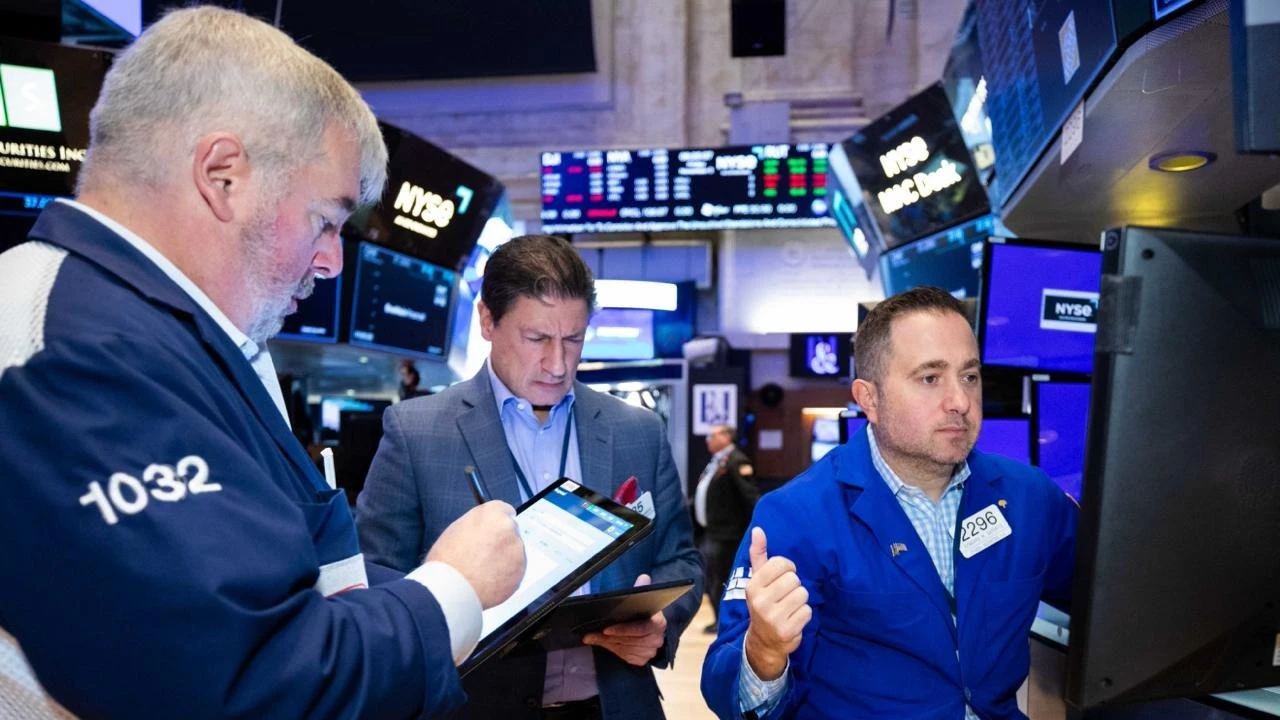US indices collapsed more than 1% after new duties and jobs data

- The main U.S. stock index S&P 500 fell 1.5 percent after trading began Aug. 1.
- The blue-chip index Dow Jones lost 1.4%.
- The technology stock index Nasdaq Composite was down 1.9 percent.
- At the beginning of trading on Friday, shares of some IT giants that make up the "Magnificent Seven" were also falling. For example, Microsoft was down 0.6 percent; Amazon s shares fell nearly 8 percent after the report; Meta was down 2 percent; Nvidia was down 2.5 percent. Shares of Tesla and Alphabet (Google's owner) were losing 1.3% each. Only Apple remained in the plus: the company's securities rose more than 2% after a strong report.
- The Russell 2000 index of small-capitalization companies decreased nearly 1% on Friday.
- The CBOE Volatility Index, better known as the Wall Street Fear Index, rose nearly 12%.
- The yield on 10-year U.S. Treasuries rose 1 basis point to 4.39% on Friday, reports Barron's. The yield on two-year U.S. Treasuries fell 16 basis points to 3.79%, adds Bloomberg. The U.S. dollar index tracked by Bloomberg was down nearly 1 percent and gold fell 0.3 percent to $3340 an ounce. Bitcoin fell by an immediate 2.1% to $115.3k per coin, while the second-largest cryptocurrency, Ethereum, fell 5% (to $3.6k).
What happened
Investors sold off US stocks as Trump announced a 10% basic import duty for a number of countries, including those without trade agreements with the US. The rate will depend on the trade balance with the U.S.: if there is a surplus, it will be basic, if there is a moderate deficit, it will be 15%, and if there is a large deficit and no signed mutual trade agreement, it may be higher. At the same time, the increased trade duties will affect almost 70 countries and territories, including the EU, and will begin to take effect in seven days. Thus, duties on a number of goods from Brazil will rise to 50% ("mirror" rate of 10% and ad valorem rate of 40%), from Switzerland - 39%, from Canada - 35%, from India - 25%, from Taiwan - 20%. In addition, the White House has imposed a 40% tariff on all goods in transit to prevent circumvention of its sanctions. Если планы Трампа будут реализованы, то средний уровень пошлин в США может вырасти до 15,2%, подсчитал Bloomberg. By comparison, before Trump's return to the White House, that figure was just 2.3% in 2024, the publication adds.
Nevertheless, investors were supported by fresh data on US non-farm payrolls. Job growth in July slowed to 73,000 instead of the expected 100,000, while the unemployment rate rose to 4.2%, CNBC reports. This was a positive sign for the market, as it may encourage the Fed to cut rates sooner, the channel adds. Earlier, Barron's noted that stronger data would have been perceived negatively by the market, as on the contrary, would reduce the likelihood of a rate cut at the next meeting of the Fed in September.
What's being said on Wall Street
"Friday's jobs report was weaker than forecast - employers remain cautious amid high uncertainty," noted in a Bloomberg statement by Glen Smith of GDS Wealth Management. He said the hiring slowdown has been going on for months and could prompt the Fed to cut rates in the fall.
According to CME Group's FedWatch tool, which monitors market expectations for Fed policy, traders now estimate the probability that the regulator will cut rates in September at 66%. Yesterday it was 39%.
Prior to the release of the jobs report, Nomura International Wealth Management IT director Gareth Nicholson warned investors in a Bloomberg statement of high uncertainty and that they should hold off on betting on the nonfarm payroll market today.
Under such conditions, the market's attention is likely to shift to shares of AI companies - so far this segment seems to be protected from trading risks, Barron's notes. The situation may change only if Trump decides to impose duties on chips, the publication adds.
Trump's latest trade measures are far from a worst-case scenario, Berenberg economist Atakan Bakiskan noted in a CNBC report: the president has previously hinted that the 10% prime rate could be doubled. Nevertheless, new duties, he said, are a major blow to global trade, and the U.S. itself risks suffering through higher inflation and a slowing economy. Bakiskan also pointed out that the tariffs distort competition between U.S. manufacturers and foreign producers. However, many manufacturers from Europe, Japan and South Korea compete more with each other than with U.S. companies in the U.S. market, the economist said. And because they all face the same 15% rate, the impact is less disruptive than if the duties were different for each country.
Goldman Sachs strategists, in turn, urged investors to remain hedged, emphasizes Bloomberg. "There are still enough risk factors to justify defensive positions in portfolios," wrote analysts led by Lotfi Karoui even before the White House announced new reciprocal duties (quoted by Bloomberg). According to them, economic growth could slow unexpectedly, disinflationary pressures could weaken, and heightened concerns about Fed independence could cause a sharp drop in long-term bond yields.
The news is supplemented.
This article was AI-translated and verified by a human editor
